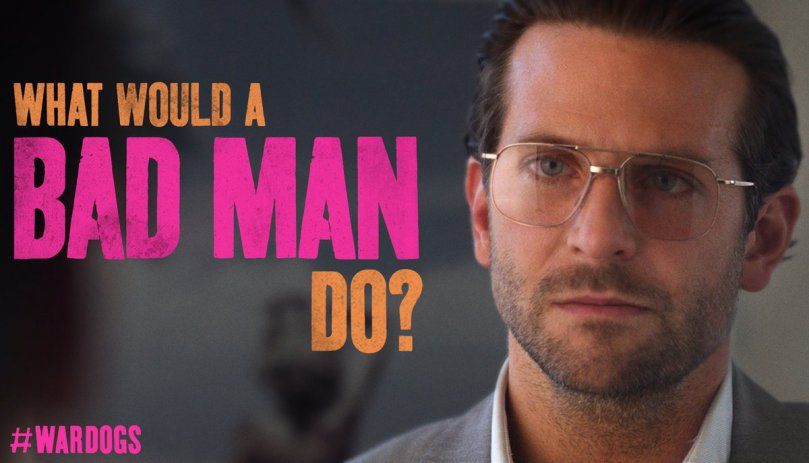
The film doesn’t instill much confidence in the US government or the state of international arms dealing either, though it’s probably wise to steer clear of delving too deep into that particular minefield. These aren’t men we’re supposed to like or sympathise with and Phillips is clear to paint the duo in the negative light their illegal conduct should be associated with. His shrill laugh and overconfident demeanour almost make you happy for his predictable disgrace. But whilst Teller brings an element of earnestness to his role (we’re led to believe that essentially he just wants to give his family a good life), Hill’s Diveroli is entirely unlikeable and painted as the villain of the story. Teller and Hill optimize the laddish behavior and mindset of Packouz and Diveroli – something that borders on complete arrogance. Soon the two are living the high life, with fancy apartments, sports cars and a rich lifestyle that’s like an addiction, making their downfall feel inevitable from the moment they decide to swindle the government. With a family to consider, David is the voice of reason, though he’s swept along with Efraim’s crazy enthusiasm for what they’re doing and all the dosh they’re banking. Never for a second does he believe they’ll get caught out. He doesn’t care about laws or breaking them, he just wants to make money and part with as little as possible. From the beginning, Jonah Hill’s Efraim is the wild card, the loose cannon.

Anyone who’s read Guy Lawson’s Arms and the Dudes will know how the story ends, though it’s clear from the opening flash-forward – where Teller’s David has a gun pointed at his head – that this is very much a tale of a business, and a friendship, gone sour. With their reputation and future at stake, the duo – known as ‘the dudes’ for their proclivity for getting stoned – repackage the ammunition crates in order to hide the country of origin and fool the government. Inexperienced and eager for a quick sale, Packouz and Diveroli secure ammunition from Albania, not realising that it originates from China and is therefore illegal under US Army law. The pair very quickly win hundreds of contracts worth millions of pounds, before obtaining a major deal with the US government to supply the Afghan Army with ammunition and aviation rockets. The film centres on David Packouz (Miles Teller) who joins his friend Efraim Diveroli’s (Jonah Hill) arms company, AEY, in order to provide a better life for his pregnant wife. Veiled in an entertaining script, this true-life story of two unlikely hustlers isn’t so much about the ethics of what they were doing but how they managed to pull it off, and how they eventually got caught. knows that audiences are drawn to true stories.Inspired by an article about two American arms dealers who gained a $300 million contract with the US Army and subsequently committed mass fraud, Todd Phillips’ War Dogs paints a dark and disturbing picture of contemporary America. The lawsuit, accessed by the entertainment news site, says War Dogs is “a knowingly false portrayal of Diveroli‘s real story that has been misleadingly sold to consumers as the unadulterated truth, because Warner Bros.
#REAL WAR DOGS STORY LICENSE#
"No one owns the historical facts recounted in such movies, and moviemakers have broad artistic license to dramatize stories 'based on' true events," writes attorney Matthew Klein in a motion filed Thursday in Florida federal court, according to the Hollywood Reporter. Meanwhile, ‘War Dogs’ creators are fighting back with the first amendment. Among the casualties were the young dealer’s plans to make a film based on his own manuscript. Diveroli was in prison when director Todd Phillips, named in the lawsuit, optioned a Rolling Stone magazine story about his life.

The studio asked a federal judge on Thursday to dismiss the suit filed by real-life gunrunner Efraim Diveroli in June.Īccording to media reports, Mr. over its 2016 comedic drama “War Dogs,” which chronicles the tale of two young men who land a $300 million government arms contract.

The common Hollywood contention of whether a film is a true story or based on a true story is the basis for a lawsuit against Warner Bros.


 0 kommentar(er)
0 kommentar(er)
